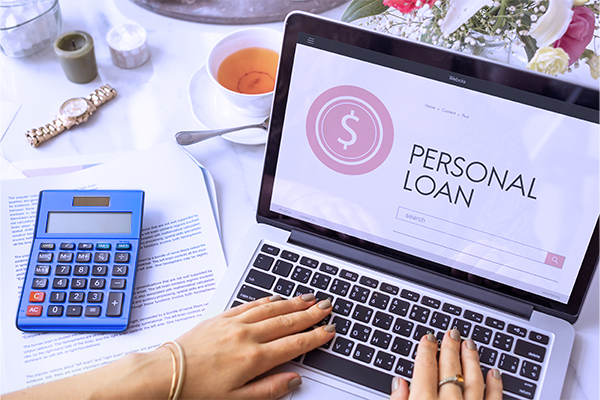
Personal Loans vs. Credit Cards for Big Purchases in Malaysia
When planning a large purchase, one common question arises: should you opt for a personal loan or use a credit card? Both are popular borrowing tools, but each has distinct features and advantages that cater to different financial needs. Understanding the key differences can help you make a decision that aligns with your goals and ensures manageable repayments.
What is a Personal Loan?
A personal loan is a type of financing where you borrow a lump sum of money upfront, typically with a fixed interest rate and a defined repayment period. A fixed interest rate would mean that your monthly payments remain consistent throughout the loan term. This makes the repayment structure clearer within the repayment period, often ranging from 2 to 5 years.
Since you receive the entire loan amount at once, personal loans are used for planned expenses such as home renovations, weddings, or consolidating high-interest debts.
What is a Credit Card?
Credit cards allow you to borrow as needed up to your approved credit limit. Unlike personal loans, credit cards often have variable interest rates, which can fluctuate depending on the cardholder’s profile. You have the option to make minimum payments, but carrying a balance accrues interest on the remaining amount.
Many credit cards offer rewards programmes, cashback, and promotions that can add value for frequent credit card users. Credit cards are best suited for smaller, recurring purchases where rewards and benefits can be maximised, such as dining, groceries, or travel expenses.

1. Interest Rates
Personal Loans: Personal loans typically offer lower, fixed interest rates compared to credit cards. For large expenses that you intend to pay off over time, a personal loan’s lower rate and fixed payments generally make it a better option.
Credit Cards: Credit cards tend to have higher, variable interest rates, which can make carrying a balance costly due to compounding interest. While credit cards work well if you pay off the balance in full each month, prolonged debt repayment becomes expensive.
Which is Better?
For long-term, high-cost purchases, personal loans are usually better due to lower rates and fixed interest, keeping borrowing costs predictable and manageable.
2. Repayment Terms and Flexibility
Personal Loans: With a fixed repayment schedule, personal loans allow for predictable monthly payments, which makes budgeting easier. Since the amount borrowed is fixed, there’s no temptation to keep borrowing.
Credit Cards: Credit cards offer flexible repayments with minimum monthly payments; however, this flexibility can lead to longer debt repayment periods and the potential for high-interest charges if not managed well. Credit cards also allow continuous borrowing up to the credit limit, which may lead to overspending.
Which is Better?
Personal loans offer structured repayment, providing stability and clarity. Credit cards offer greater flexibility but require careful management to avoid accruing high-interest debt.
3. Fees and Charges
Personal Loans: Personal loans may come with upfront processing or administrative fees, which are a one-time cost.
Credit Cards: Credit cards can come with various fees, including annual fees, late payment fees, and over-limit fees. Additionally, balance transfer fees may apply if you transfer balances from one card to another.
Which is Better?
Personal loans usually have fewer ongoing fees, while credit cards can accumulate multiple fees if not properly managed.

When Should You Use a Personal Loan?
A personal loan may be more suitable if:
a. You Need a Lump Sum for a Specific Purpose: If you’re financing a large, planned purchase and know the full amount needed upfront, a personal loan provides predictable financing.
b. You Want Predictable Payments and Lower Interest Rates: For those who prefer the structure of fixed monthly payments and a lower interest rate, a personal loan would be beneficial.
c. You Are Consolidating Debt: Personal loans often come with lower interest rates, making them an ideal choice for consolidating high-interest debts.
With HLB personal loans, you can enjoy competitive interest rates and set monthly instalments, making it easier to manage monthly budgeting. Apply for a personal loan online conveniently via HLB Connect app.
When Should You Use a Credit Card?
Credit cards may be better suited for:
a. Smaller, Recurring Purchases: For everyday purchases, a credit card provides easy access to credit and rewards.
b. Short-Term Borrowing with Full Repayment: If you can pay off your balance each month, you can avoid interest charges while benefiting from rewards or cashback.
c. Taking Advantage of Rewards: If you have a rewards card and can manage your spending, a credit card can offer valuable benefits.
HLB credit cards offer valuable perks and benefits, like cashback on groceries and petrol or reward points redeemable for various items. You can apply for a new HLB Credit Card online using our HLB Connect app.
Conclusion
Deciding between a personal loan and a credit card depends on the purchase size, your ability to repay, and your financial goals. Personal loans work well for large, long-term expenses that require fixed payments and lower interest. On the other hand, credit cards offer flexibility and rewards, ideal for recurring expenses and short-term borrowing. By considering Hong Leong Bank’s personal loans or credit cards, you can find the right borrowing solution tailored to your financial needs, whether it’s for a significant one-time expense or a flexible, reward-driven spending option.